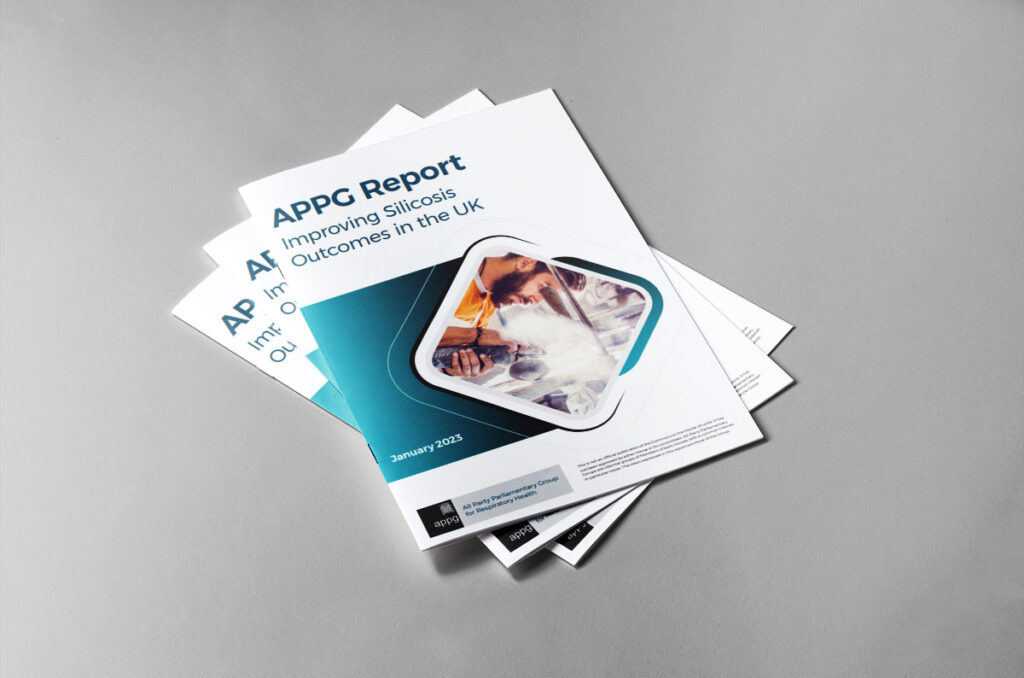January 2023 sees the release of a new report from the UK’s All Party Parliamentary Group (APPG) for Respiratory Health which includes clinical and regulatory recommendations that will make a real difference to silicosis outcomes and the future protection of workers health from respirable crystalline silica (RCS).
Silica (Silicon dioxide) is found abundantly in the earth’s crust in stone, rocks and sand and is present in two forms: amorphous and crystalline silica. Respirable crystalline silica is created when freshly ‘fractured’ through processes including stonecutting, drilling and polishing. Invisible to the naked eye in normal light, the respirable size fraction which is less than 4 micron is fine enough to reach deep inside the lungs when inhaled, putting workers at risk.
Silicosis, a long-term lung disease caused by inhaling large amounts of crystalline silica dust over extended periods, is considered to be the most common chronic occupational lung disease worldwide with an estimated 600,000 workers exposed to silica in the UK each year. According to the HSE, 12,000 lung disease deaths each year are estimated to be linked to past exposures at work.
DustCanary welcome and fully support the APPG’s recommendations including those which promote good quality real-time monitoring such as standards and certification schemes.
Reflecting on technological developments in real time dust monitoring in the wake of the previous APPG report (2020), ‘Silicosis – the New Asbestos?’, Will Averdieck, DustCanary CEO added ‘Real progress has been made in the development of smaller, lightweight wearables convenient for daily use. Whether qualitative measurement systems or detection alarms, the instantaneous and time profiled information from real-time monitoring enables better decisions and faster actions to prevent incidents of avoidable respirable dust exposure. We welcome the opportunity to work closely with regulators and industry experts in helping to protect the respiratory health of workers.’

